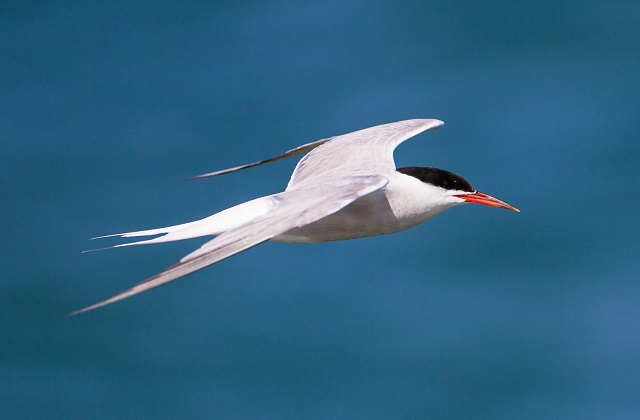
New protections for thousands of seabirds in England
Written by Defra Press Office

There is widespread positive coverage today of the announcement made by the Environment Minister Rebecca Pow, on ambitious plans to protect England’s rare and vulnerable seabirds. The designation of new special protection areas for seabirds was based on scientific advice prepared by Natural England.
In addition to articles appearing in BBC News, Daily Mail and ITV, as well as a breakfast segment in ITV Tyne Tees, the news is covered widely in publications such as Yorkshire Post, Portsmouth News, Northern Echo, Teesside Live and Dorset Echo. Overall, the announcements were covered by close to 60 publications.
Speaking at the Coastal Futures Conference this morning, Minister Pow announced new and extended Special Protection Areas (SPAs) in the Solent and near Middlesbrough, which collectively span an area equivalent to more than 140,000 football pitches. The Minister also announced plans to develop a new Seabird Conservation Strategy.
The new Solent and Dorset Coast SPA will protect close to 1,000 pairs of three species of tern and will span an area of more than 891 km2, while the Teesmouth and Cleveland Coast SPA is to be extended to cover more than 122km2.
The new and extended locations join 47 existing SPAs in English waters.
The Seabird Conservation Strategy will be published in December 2020 and will assess the vulnerability of each species in light of the pressures they are facing and will propose actions to address them.
During the speech, Minister Pow underlined the UK’s commitment to strengthen protections for marine life impacted by climate change and reaffirmed support for the independent Highly Protected Marine Area (HPMA) review.
Environment Minister Rebecca Pow said:
The UK continues to be a world leader in cutting carbon emissions and pushing for greater protections for marine life around our coast and in the global ocean.
As the devastating impacts of climate change are only too visible, it is vital that we take decisive steps now that make a real difference to help protect our wildlife and allow vulnerable species to recover.
We have already protected important nesting sites for seabirds, such as the little tern, and these new and additional protections to their feeding grounds, together with the development of a new strategy to protect our seabirds, will help the coastal environment recover, develop and, importantly, thrive.
The Natural England Chair Tony Juniper, as well as the Director of Global Conservation at RSPB, Martin Harper, also commented on the announcements.
Tony Juniper, Natural England Chair, said:
Many of Britain’s sea and shorebird populations are globally important and for that reason we have a particular responsibility to protect and enhance them. I am delighted that, following an extensive evidence-based assessment by Natural England, these new areas, confirmed today by Government, will help to do that. They will ensure that species of conservation concern, such as terns and waders, have access to secure food sources, including during their critical annual breeding seasons.
When it comes to the bigger picture and longer term, all of us at Natural England look forward to working together with Defra and others across government to further develop and implement the landmark Seabird Conservation Strategy. This is a vital undertaking, through which we will be better placed to understand the challenges that seabird populations currently face and consider whether further measures are needed to help their recovery.
Martin Harper, Director, Global Conservation, Royal Society for the Protection of Birds, said:
Many seabird species are declining at an alarming rate, both globally and across the UK. We welcome today’s announcement by the government to reverse these declines through a comprehensive Seabird Conservation Strategy.
It will be a first step in tackling this growing problem and is something that the RSPB has been calling for. We look forward to working with the UK Government to make sure that these islands remain globally important for seabirds.
The collection of SPAs forms part of the UK’s ‘Blue Belt’ of Marine Protected Areas and join 41 new Marine Conservation Zones designated in May. The UK seabird population is of global importance, with around one quarter of Europe’s breeding seabirds.
Regulators, such as Natural England, the Marine Management Organisation and local Inshore Fisheries and Conservation Authorities (IFCAs), will be responsible for ensuring the SPAs are managed to protect their species and habitats, working with local fishing communities and other organisations.
Continue reading on Defra Website...





